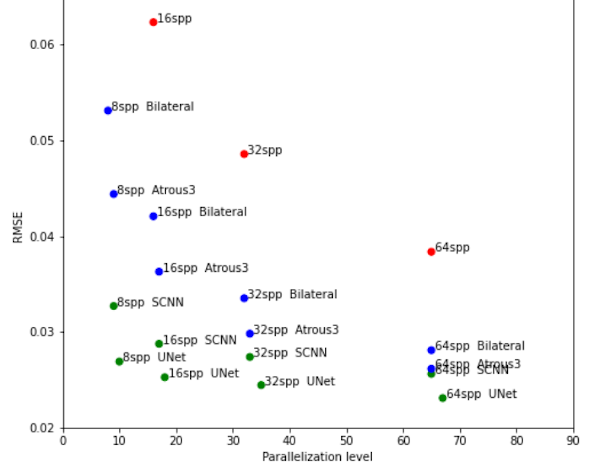Fast Convolutional Neural Networks for Real-Time Path Tracing Denoising
2021, Lotvonen, A., Master of Science thesis, Tampere University.

Abstract: Path tracing is a method to generate photorealistic images with physically based effects such as reflections, shadows, refractions and global illumination. Path tracing in real-time requires large amount of computational power and it is often more sensible to use efficient post-processing methods to improve the quality of the output than using the computational power to increase the number of samples and thus decreasing the error this way. However, the ease of parallelizing path tracing offers a good way to improve the results for real-time when the high amount of computational power is attainable for example in a server cluster.
The advancements in machine learning for image-based problems and the evolving inference hardware for neural networks enables the reconstruction of multiple samples per pixel path tracing in real-time using machine learning based methods. However, most of the previous machine learning based methods do not consider real-time inference and this becomes even more prevalent with real-time path tracing where the path tracing takes most of the computational time from a single frame.
In this thesis, the performance of fast convolutional neural networks is tested for denoising path traced images with multiple samples per pixel. The fast convolutional neural networks can achieve better error metrics than state-of-the-art analytical bilateral based filters in most cases. Moreover, for real-time performance the fast convolutional neural networks may be processed with almost similar requirements for computational power as the analytical filters. Also, the fast convolutional neural networks can achieve better quality in almost all cases with 8 samples per pixel inputs compared to just path tracing with 64 samples per pixel with 8x times required computational power or level of parallelization.